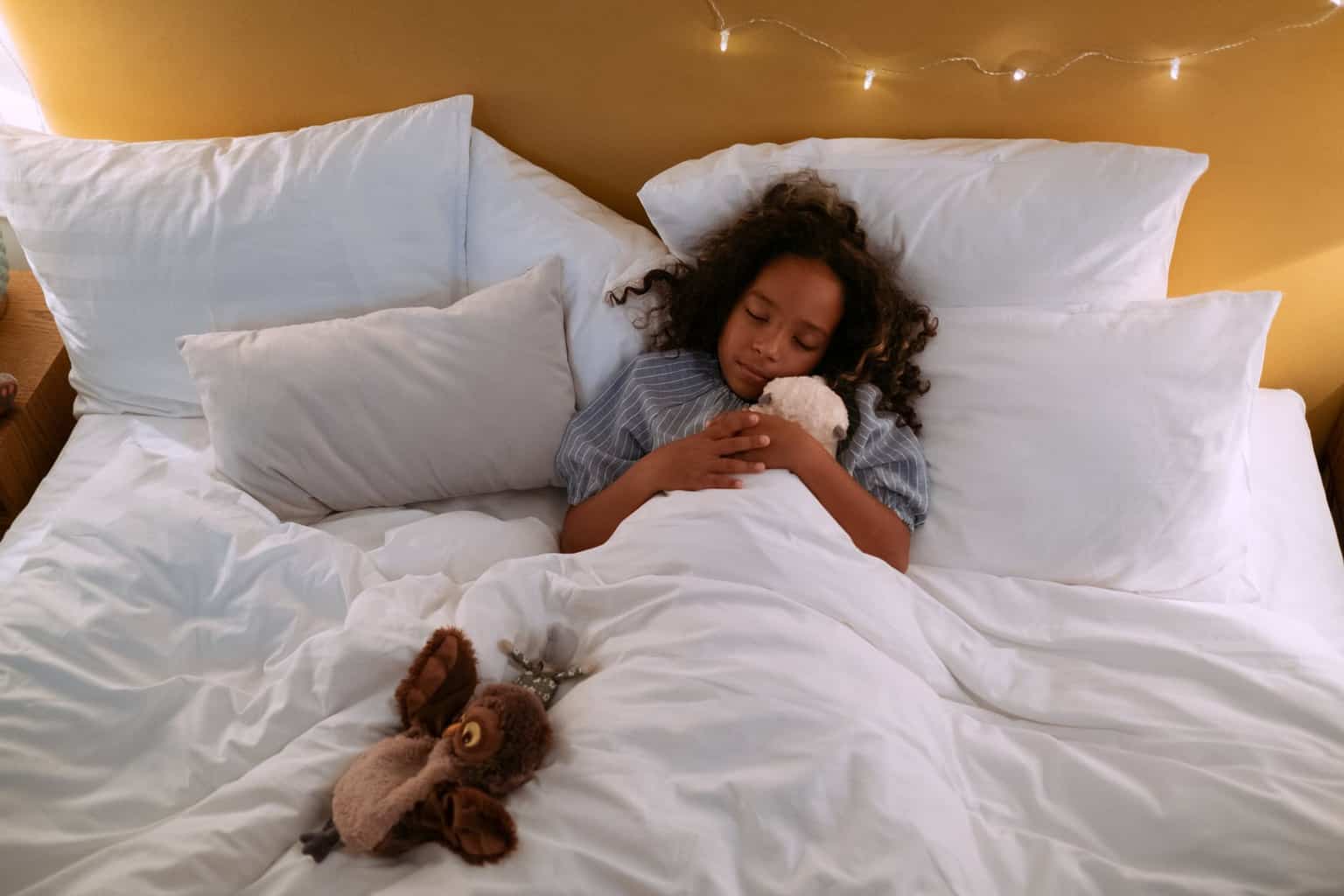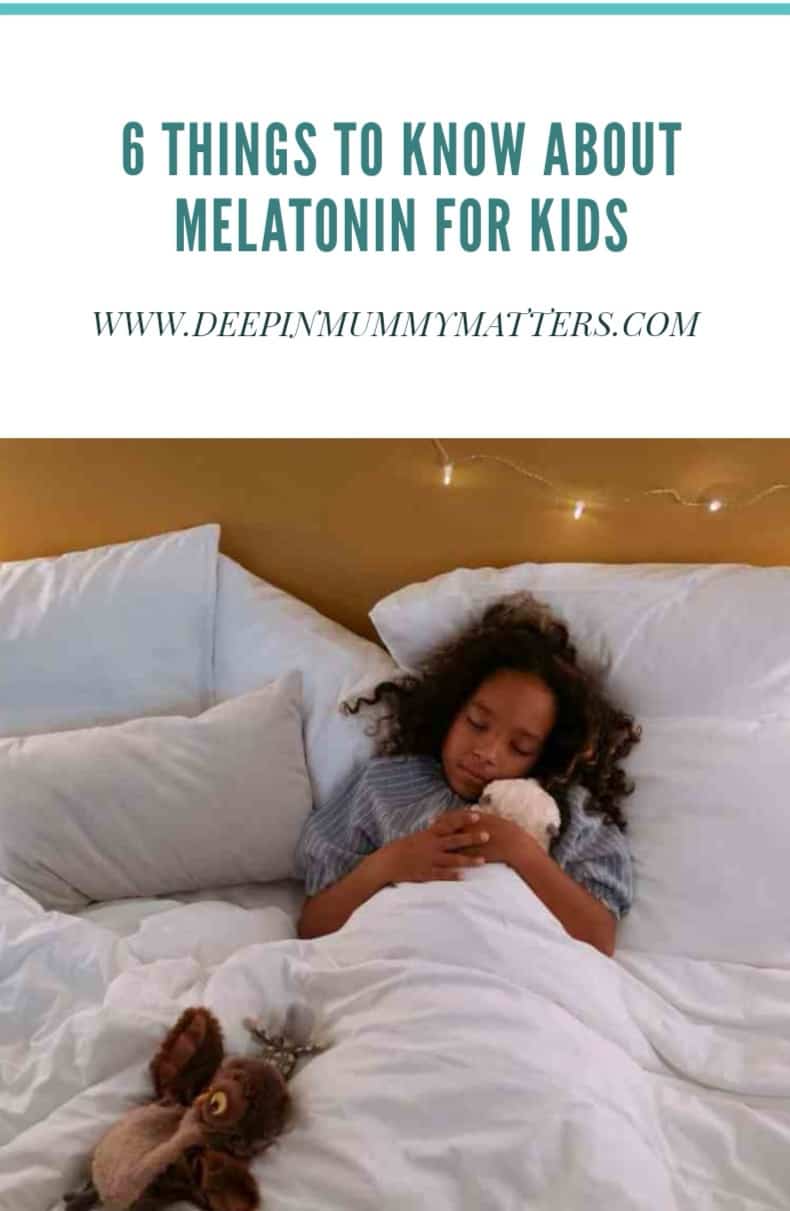Some children find sleep a challenge, leaving them and their parents cranky and bleary-eyed the next morning. Many parents have faced the seemingly insurmountable task of getting their children to have a good night’s sleep.

Tired children do not function well in a classroom environment, and a lack of sleep severely impacts their ability to learn. Among the potential solutions to this persistent problem is a melatonin supplement. But before you give your child one, here is some vital information:
Melatonin is known to encourage sleep
Melatonin is a hormone that helps promote quality sleep. The body produces this substance naturally, and for most people, this is sufficient. However, some people, including children, might have a melatonin deficiency or require higher levels than what their bodies produce. Melatonin gummies for kids can prove to be the ideal way to raise your child’s melatonin levels to facilitate sleep. The effects start kicking in about 30 minutes so they can sit relaxed for time or enjoy some activity and then sleep peacefully.
Melatonin levels in the body rise about two hours before the body wants to go into a period of rest. Increased melatonin levels make the body feel relaxed and lethargic. This is a vital component of the circadian pattern that regulates our bodies’ need for states of sleepiness and wakefulness. If your child’s melatonin levels are not rising before bedtime, you will have a harder time getting them to sleep.
Melatonin is not a cure-all

Unfortunately, a melatonin supplement is not a panacea for every sleeping problem a child could have. It will not prevent children from waking up from nightmares, getting out of bed at unbearably early hours, and a lack of sleep caused by pain, such as indigestion. Additionally, melatonin supplements will not teach children who procrastinate about bedtime to follow the rules. These are issues that parents should deal with by managing their children’s behaviour, responses, and medical conditions that could hinder sleep.
Where melatonin supplements could come in handy is when a child is put to bed but struggles for longer than 30 minutes to fall asleep. This is bound to happen to any child at some stage. However, if there is no apparent cause of their sleep disruption and a pattern of sleeplessness reveals itself, a melatonin supplement might help.
Melatonin might help children with attention deficits
Children with ADHD (attention deficit and hyperactive disorder), concentration issues, and autism often find it hard to sleep at night, especially those using medication for their condition. They struggle to settle down in the evening and often seem to become more wired as bedtime approaches.
This creates a vicious cycle, where a lack of sleep exacerbates the condition, and the condition inhibits the ability to sleep. Very often, children who fall into these categories will function better after a good night’s sleep. However, this will have to become a long-term regimen as most children revert to previous sleep patterns as soon as they stop taking a melatonin supplement.
Consult your doctor before trying melatonin
As a rule, melatonin is not routinely advised for children under the age of 12, although exceptional circumstances might mean that it will provide your child with the relief they need. It would be advisable to see a doctor to rule out any other potential causes of childhood insomnia before trying a melatonin supplement. If there is an underlying cause of a child’s inability to sleep, you will have more long-term success if treated instead of sleeplessness, which is a symptom.
A paediatrician will recommend that you try a melatonin supplement if there appears to be no medical reason for a child’s insomnia. Follow the dosage directions carefully and discontinue the treatment if there is no visible improvement in your child’s sleeping pattern within two weeks.
Choose your supplement wisely
Melatonin supplements are not required by law to be subjected to any form of regulation. Therefore, what the label describes as the ingredients might not be what the supplement contains.
Find brands that come from reputable manufacturers and producers, especially those that adhere to high ethical production standards. Look for companies that are transparent about their products and what they contain and are willing to back what they say up with scientific data and laboratory tests.
Do not rely on melatonin alone

A lot of children have sleep problems because their environment is not conducive to sleep or they are not in a set sleep routine. Children crave order, and a bedtime routine makes them feel secure enough to go to sleep. Their bedrooms should be darkened with heavy curtains, although some younger children might still require a soft night light to fall asleep. Ensure that your child is wearing comfortable sleepwear and has enough pillows and blankets.
Any action that stimulates the brain, such as screen time or sugary snacks, should be avoided at least two hours before bedtime. When the brain is overstimulated and unable to shut down for the night, sleep becomes a significant challenge.


Such an interesting article. I actually use melatonin myself for certain times of the month when my hormones massively affect my sleep. Having said that I do think you need to be cautious with using it on children (and adults for that matter) for prolonged periods…
Do you find it helps you much?
Melatonin is something that is prescribed for kids like my daughter a lot, and you’re right, it’s not a miracle cure. It can help settle the effects of restless legs in children with Di George Syndrome (my daughter’s condition).
I think sometimes it’s a case of a little of this and a little of that x
This sounds like something that could help a lot of children, along with doing other things as well.
Yes, there are some interesting points.
It sounds very interesting, my kids all love their sleep now but not as babies LOL
Oooh I bet that was hard, two of mine were pretty good sleepers but the other one, less so 🙁